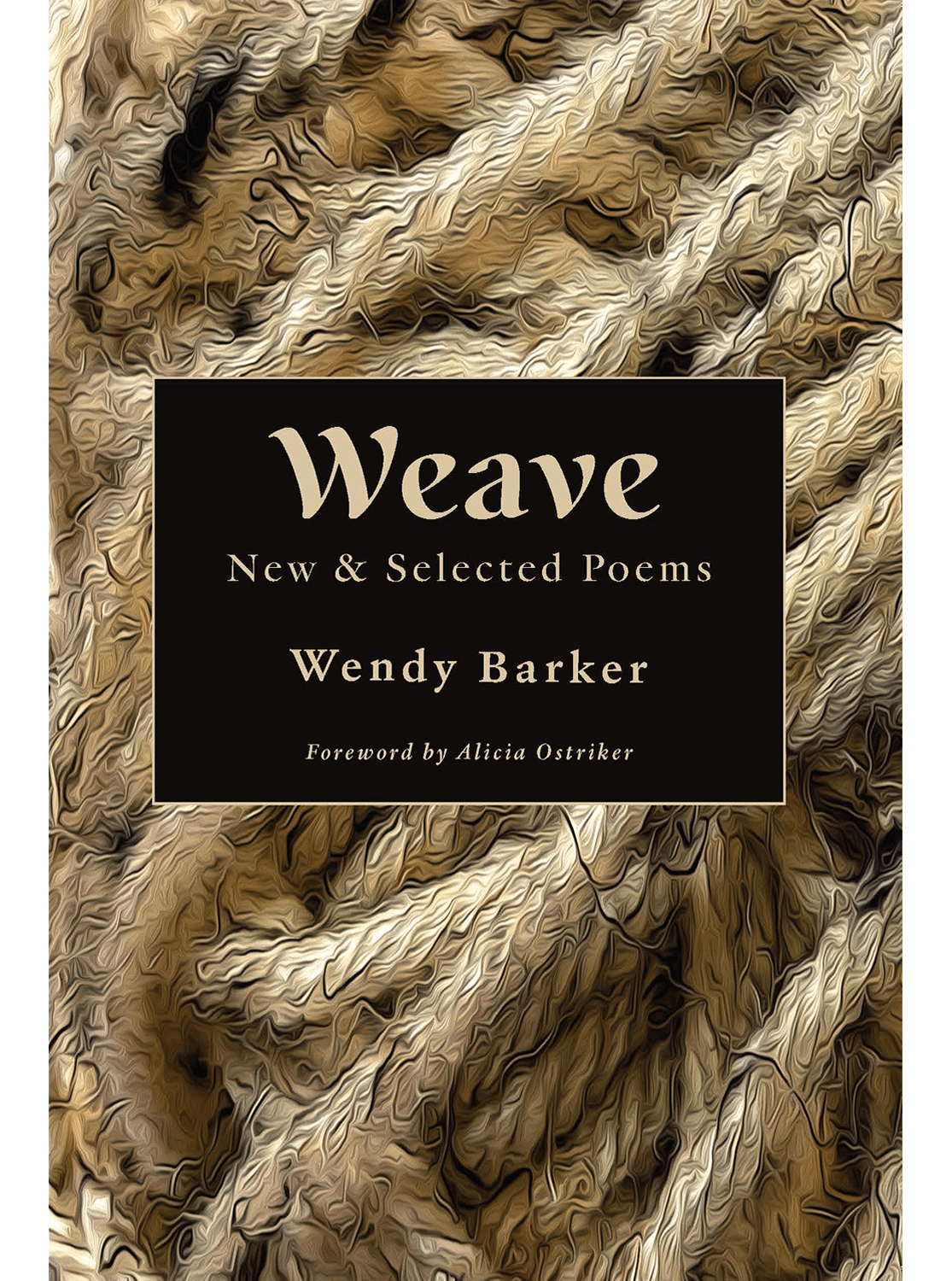Weave: New and Selected Poems showcases poems from Barker’s long career that includes selections from her seven previous full-length collections, as well as new work. The collection features a wide range of subjects and themes, notable among them the poet’s perspectives as an educator (especially in the very real-world concerns of the urban English classroom), surprises and wonders in her family’s past and present, and the hope, fear, and trenchant wit with which she sees the world around us.
“Entering the world of a poet of Barker’s sensitivity is to know immediately that this is the hand and voice of a poet who feels the spaces in which we live with our hope, our fear, and our love. This is perception beyond the eyes, located somewhere in the consciousness of a poet whose gift is that sense of living inside the impossible, for moments perceptible only to her. This is work of extraordinary care, poems crafted with concern for the line and the tempo of the language, and even more so for the fragility of beauty, the ways we care and do not care, wish and do not wish, for what each of us wants most of all in the time we are given. Weave does just as the denotative suggests, and more. It does the braiding necessary where hurt threatens care, where the poet is the healer, and where necessary, the caretaker in spaces grief refuses to abandon.”
—Afaa M. Weaver, author of Spirit Boxing and A Hard Summation
“Watching Wendy Barker’s poems unfold year after year is a lesson in how a poet grows toward the simplicity of the essential. The poems, early and late, are the most lively conversations, full of poets, artists, students, trees, birds, and history, all of which seamlessly emerge out of the deepest pains and longings and joys of one everyday life. They make music out of folding laundry. And in the recent poems, Wendy has come to a form that visually weaves on the page a fabric of remarkable beauty. I love this book.”
—Fleda Brown, author of Mortality, with Friends
“These poems collect readily into a relaxed but constant liminality, all moments tilted toward joy but with an unnerving undercurrent of what it has taken to earn their modicum of happiness. Kinetic but not antic, these offerings are filled with wise voices—memoirs just read, poets brought to mind, chef ’s directions, voices that combine with the narrator’s to form an inescapable tenderness, even with the roar of a lion all around. Weave is both a noun and a verb—a potential that runs inside all things throughout these poems and whose potential is constantly opened up to us. Sometimes the result is absolute surprise—’visiting our / grandparents, they served us a chocolate cream pie that— / we found— / swarmed with black ants.’ Sometimes it isn’t surprise at all, not exactly, but an amazed wandering through this new world we’re all living in, a surefooted trek wondering if it’s all enough, if “the weave will hold.”
—Alberto Ríos, author of Not Go Away Is My Name

